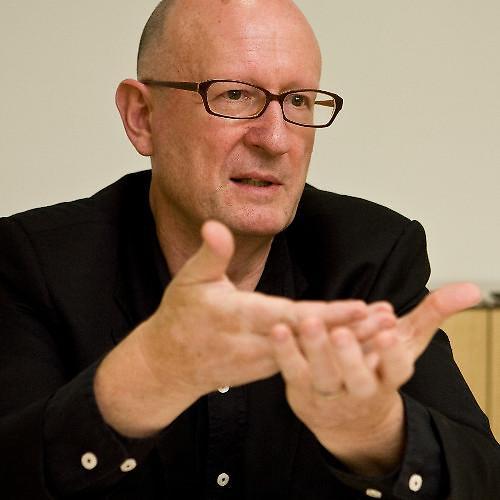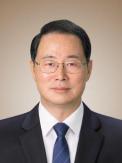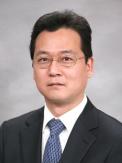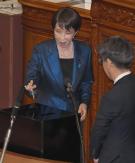
SEOUL, Sept. 6 (AJP) - Last weekend, I was driving along Sejong-ro in downtown Seoul and got held up by the Christian protest that dominates the boulevard most Saturdays.
I was on my way to meet two friends who had been foreign correspondents here in the 1980s. They were staying at a hotel nearby. The hotels downtown advise guests about protests, so they knew something was going on.
Back in their day, a demo meant earnest students hurling broken paving stones and Molotov cocktails at riot police in the name of democracy and getting hosed with tear gas in the name of “not yet, huddled masses.”
Time has passed, though. It is hard to conceive that the midwives of democracy from elite universities are now in their 60s. Harder still to appreciate that, far from being credited with democracy, they are widely disrespected by the next generation who bear the emotional consequences of that kind of neglect when parents devote more to work, whether it’s the company, the NGO, their art or “the people,” than to family.
The style of demo has changed too. Those who take to the streets in small groups invariably let their placards do the talking and pass the time fiddling with their phones. The bigger ones are sufficiently civilized for moms and dads to bring the kids.
I’m not quite sure what the specific Christian issue was. To be honest, I failed as your reporter because I was more interested in a podcast I was listening to and had to keep my eyes on the road. But suffice it to say that these were religious conservatives opposed to the other regular gathering, down the Namdaemun end of the street. One group is in favor of impeaching the president, the other group isn’t. As you might expect, this is an issue where people can easily switch sides after a presidential election.
The Christians were sitting on chairs, like it was an open-air church service. I saw Korean, American and even some Israeli flags. That was a good sign. At least they support democracies. But I also spotted a peculiarly dressed man who reminded me of that horned fur hat shaman fellow who became the face of the January 6 attack on the US Capitol. He was standing on top of a van and yelling. That wasn’t a good sign.
If I were lazier, I would call them far-right. But to be honest, use of such terms these days to describe positions within the democratic spectrum reveal little more than the bias of the writer. So, from this starting point of limited knowledge and irritation, I found myself entertaining political opinions. Readers may be familiar with this mental pattern. I advise against it, especially before voting. But annoyance can throw up ideas that, separated from their emotional origin, can have merit.
What I was thinking was this – what the hell are Christians doing yelling on the street about politics? I wasn’t fooled by any assumption of spontaneity. These folk have been at it since Park Geun-hye was impeached. The effort requires organization and budget. Churches are behind it. But what for?
In asking this, I’m not suggesting Christians should not involve in politics.
Like anyone else, they can and should be involved in every sector of society. But when churches gather their flocks and herd them onto the streets, given that congregations don’t always vote the same way, the implication is that either something big is going on, like society is collapsing, or the pastors are using issues to promote themselves.
Frankly, the presence of these Christian protestors bugs me, while that of the anti-Yoon protestors doesn’t – even though I think being pro-impeachment for frivolous reasons is anti-democratic treason.
The reason is that it is a clear case of churches stepping out of their proper role. Politics is about the use of power in organizing society. Political differences in democracies are usually over ends and ethics. In other words, is a policy an effective solution and is it fair and good? Religion has a different role. It is about fixing the inner person, so that they approach life, including politics, in a wholesome manner. This role is extremely important because your soul is more important than your vote and politics can’t fix it.
Even if the system is good – and democracy is the best we have so far – the exercise of power can turn rotten if those engaged in it are self-absorbed and unconcerned about their constituents. That’s why you want good people in positions of leadership. If your society is Buddhist, you want good, moral Buddhists in charge. If it’s Christian, you want good, moral Christians.
The same applies to other sectors of society. Take teachers, for example. Their job is to educate children. But imagine if every weekend for five years, teachers from two schools had been occupying six lanes of the main road in our city in a regular political protest. Who would want them educating their kids?
Besides, the churches have a lot of other work to do. We live in a society where people suffer from a serious purpose-of-life crisis. We have the lowest birthrate and the fourth highest suicide rate in the world. Or, how about a church-led movement encouraging men to repent about domestic violence and pledge to be proper manly husbands and fathers? Let them encourage individual Christians to engage in politics by all means. But the churches should fold up the tent and give the road back to drivers.
-------------------------------------------------------------
This article was contributed by Michael Breen, CEO of Insight Communications and a former foreign correspondent.
Copyright ⓒ Aju Press All rights reserved.




